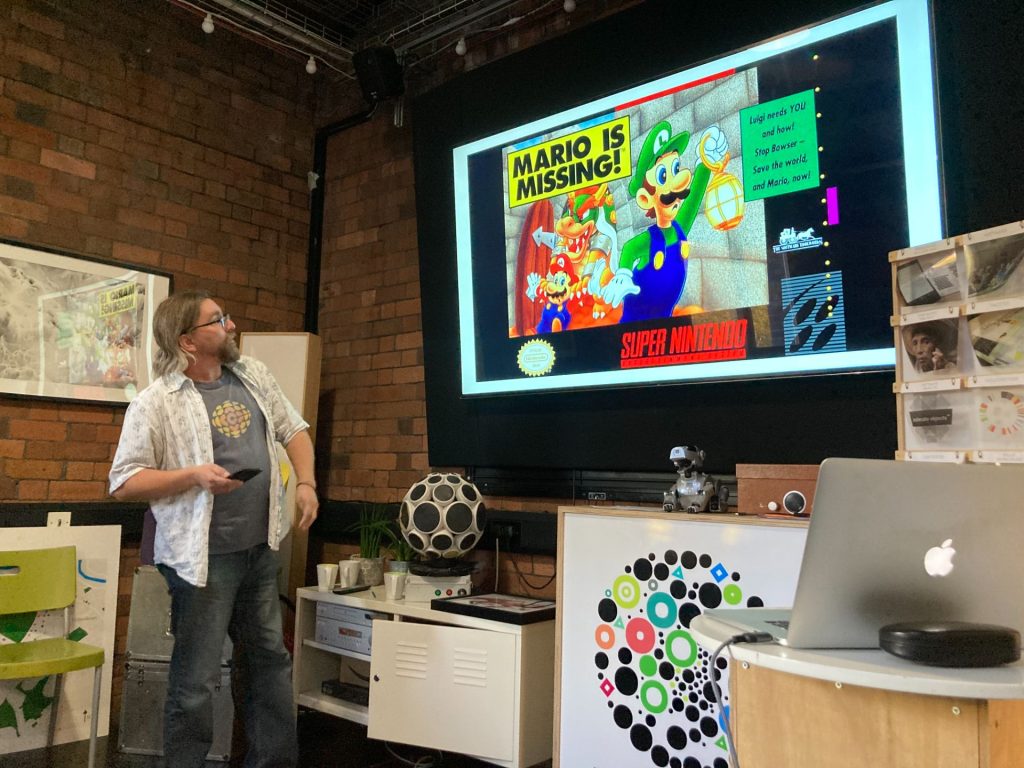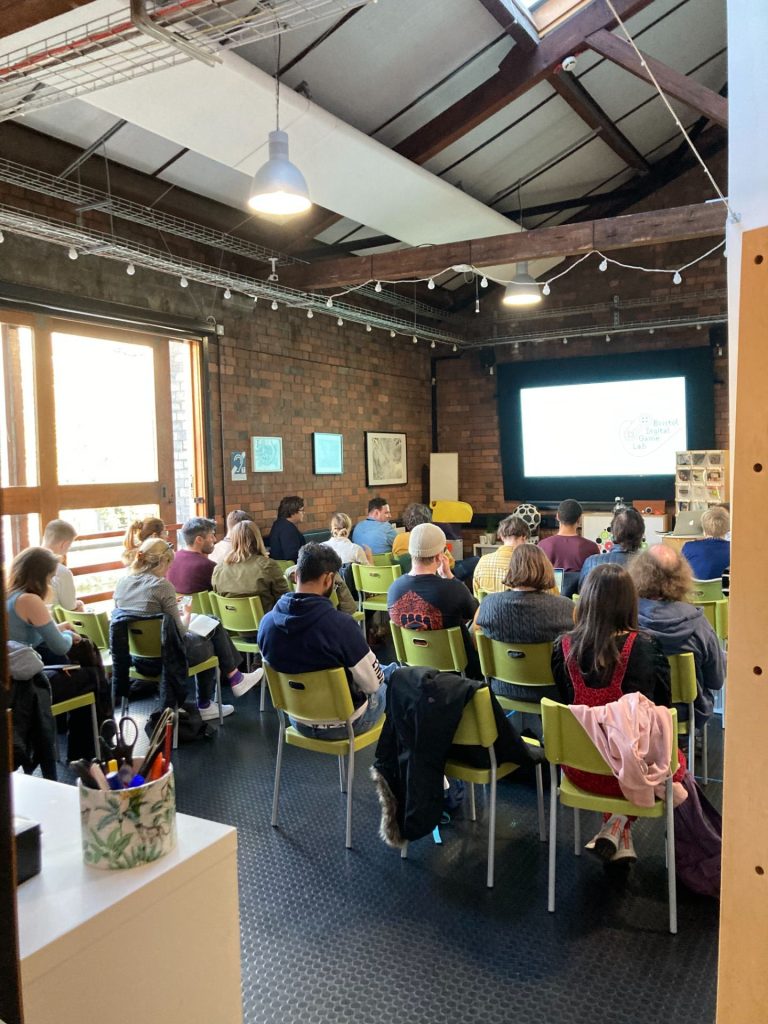

Professor James Newman (Bath Spa) delivered the Bristol Digital Game Lab inaugural research seminar on Friday 4 November 2022 at the Pervasive Media Studio. James’ title was Mario is Missing! Playing, not playing and preserving videogames. It was a tremendous talk, full of side quests, easter eggs, and nostalgia, not to mention a call to arms for how to preserve all the different ways to play video games. After the talk, the Bristol Digital Game Lab were special guests at the First Friday social event, where we introduced our aims and networked with creative professionals working at the Studio. Many thanks to James for headlining our seminar series, and to the Pervasive Media Studio and the Watershed for hosting us.
One attendee kindly wrote the following feedback on Twitter.
‘A fantastic talk! Full of ideas for cultural historians thinking about the problems from the other direction: what practices of play history *didn’t* preserve, and what we do now. Thank you #BristolDigitalGameLab!’
For those unable to attend, you can gain a sense of the talk from James’ summary:
At a time when there are more gaming platforms and titles available than ever before, it might seem strange to claim that videogames are disappearing. And yet, despite their apparent abundance, the processes of material and digital deterioration render hardware and software unusable as hard drives fail, discs become unreadable, activation servers are re-allocated and newly released systems offer no compatibility with existing libraries of games and peripherals. Adding to this, journalistic, retail and marketing practices fuel a marketplace of perpetual innovation that rationalises and justifies the rapidity of supersession and obsolescence. As such, videogames are, without doubt, disappearing and the continued – and accelerating – loss of this material denies future generations access to their cultural heritage and robs the next generation of developers historical reference material to draw on. As Henry Lowood (2009) pointed out more than a decade ago, we need to take action ‘before it’s too late’.
Building on ideas outlined in publications including Best Before (2012) and the *Game Over* (2018) and *Time Extend!* (2020) White Papers, this session considers different approaches to preserving, interpreting and exhibiting videogames. In particular, the talk revisits some underlying presuppositions and proposes a rethinking of the objective of game preservation that shifts away from the dominant assumption that the aim of game preservation is to retain long-term playability. Instead, the talk suggests ways of considering play as a complex collection of practices that need to be captured and preserved. The session concludes by exploring the application of these ideas and some innovative uses of emulation in exhibits such as the ‘Game Inspector’ developed for the National Videogame Museum where Newman is a curator and researcher.
References
Lowood, H. (2009) ‘Before It’s Too Late: A Digital Game Preservation White Paper’, American Journal of Play, 2(2) pp. 139-166. https://www.museumofplay.org/app/uploads/2022/02/2-2-special-feature-digital-game-preservation-white-paper-1.pdf
Newman J. and Simons I. (2020) *TIME EXTEND! The future of curating, preserving and exhibiting videogames*. White Paper. http://vhs-thenvm-org.stackstaging.com/wp-content/uploads/2022/06/Time-Extend-White-Paper-Newman-2020.pdf
Newman, J. and Simons, I. (2018) *Game Over? Videogame preservation, exhibition and curation*. White Paper. http://vhs-thenvm-org.stackstaging.com/wp-content/uploads/2022/06/Game-Over-White-Paper-Newman-and-Simons-2018.pdf
Newman, J. (2012) Best Before: videogames, supersession and obsolescence. New York; Routledge.

